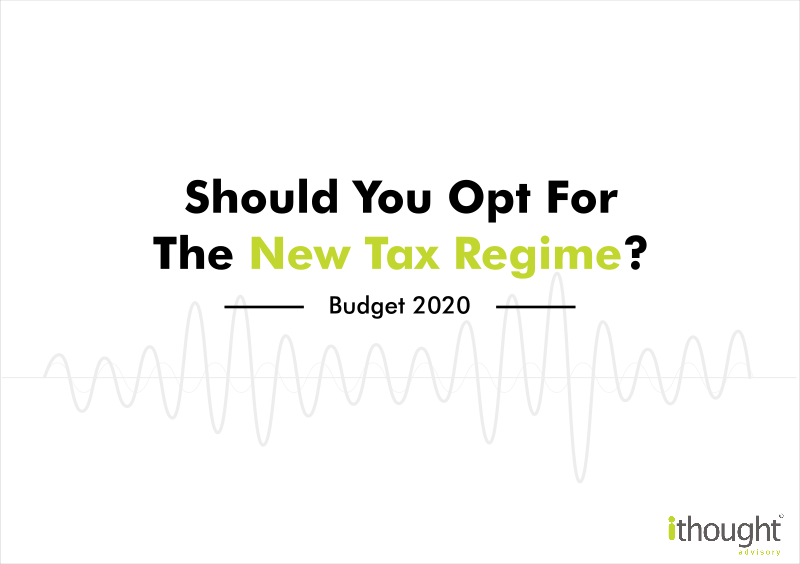
Budget 2020 has given taxpayers two options. Now, they can choose the new regime of lower income tax rates by forgoing the tax exemptions/deductions. Or, they can continue to pay tax under the existing income tax laws by claiming applicable exemptions and deductions.
Several tax deductions and exemptions – section 80C investments of up to Rs 1.5 lakh, section 80CCD (1B) that offers an additional deduction of Rs 50,000 on NPS contribution, house rent allowance, housing loan interest paid, and so on – are redundant in the new regime.
However, deduction u/s 80CCD(2) – Employer contribution to NPS and Sec 80TTA – deduction on savings bank interest will continue in the new tax regime.

The tax rates and slabs look attractive under the new regime. But, doing away with exemptions and deductions that bring down your taxable income, acts as a deterrent.
The tables below compare the tax payable under the old and new regimes for different income levels.
CASE I – Salaried individual not claiming deductions (after Standard deduction):

Assuming no tax deductions or exemption are claimed in the existing personal tax regime, the individual will save tax in the new tax regime.
CASE II – Salaried individual claiming most deductions:

Disclaimer: These calculations are for illustrative purposes only. The amount eligible for deductions may vary from one taxpayer to another.
So, the important decision to make for a taxpayer is whether to shift to the new income tax regime or not.
A quick summary of how the tax regime works:
- The new tax regime will make no difference to those with taxable income below 5 lakhs.
- It is beneficial for those who are not claiming any deductions or exemptions if their income is over Rs. 5 Lakhs.
- For those in the 20% and 30% tax bracket (old regime) and claiming most deductions and exemptions, the new tax regime may not benefit.
- Someone with high income and high consumption may benefit from the new regime.
- Someone who doesn’t have the capacity to save (i.e. due to personal loans, etc.) may also benefit from the new tax regime.
Clearly, those who have not invested in section 80C avenues or availed other deductions/exemptions benefit from the new regime. The new tax regime may work well for those starting out their careers. Early on, there may be few investments and no house. Complying with tax norms will be easy without professional help.
Many 80C deductions are long-term savings and recurring in nature. If you plan your tax-saving investments well, why would you want to stop availing these benefits by switching to the new regime?
A salaried employee can choose between the tax regimes every year. To make an informed decision, it is important to evaluate both options. Financial planning is more critical now than ever before. Starting your tax and investment planning at the beginning of the financial year is key. This will allow you to make timely declarations and opt for the right regime.
Comment on this post if you’d like our tax experts to get in touch with you!